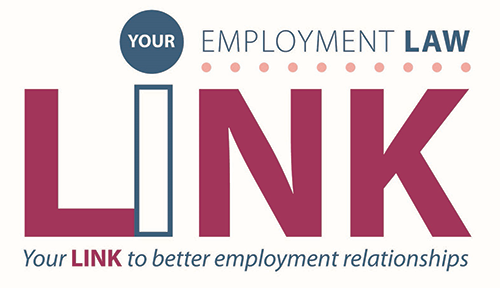Beware of offers for unpaid work trials

Unpaid pre-employment work trials are common in many industries but they do not necessary free employers from the obligations of our employment law. Randi Westphal, local business woman and Director of The Salad Bowl, one of Nelson’s newest and healthiest café, found this out at considerable cost, as too did Christine McKay, Director of Quality Firewood, Dunedin.
Randi said she offered Amberleigh Howe-Thornley a work trial. Not so, said Amberley, she offered and I accepted permanent employment. No she didn’t, said Chief Judge Colgan of the Employment Court, she offered you a work trial. However, that was the end of the good news for Randi and for the industry in which she worked. The Chief Judge concluded Amberleigh had been employed for a fixed term in circumstances that did not comply with the law, had been a permanent employee, had been unjustifiably dismissed, branded and stigmatised unfairly as a thief in some prominent news media account of the earlier decision of the Authority. The Court upheld the Authority’s awards of $5,000.00 humiliation compensation and a little over $1,200.00 in lost wages. Costs for the Court hearing were close to $2,250.00; costs for the ERA hearing were more than $1,700.00.
What happened and what went wrong? Randi had a good idea and good intentions. They were that she would apply to the Council for a consent to operate a mobile food cart and advertise the job. The successful candidate would need to be good at multi-tasking and Randi would need to be certain the successful candidate was somebody she could trust. Amberleigh was the only candidate interviewed. The Chief Judge found that Randi had told Amberleigh that if her reference checks and work trial of 3 hours were satisfactory there seemed to be no reason why she would not be hired.
So what was so wrong with that? Well nothing really but there was no understanding between them about whether Amberleigh would be paid for her work trial. Amberleigh thought she would be paid but Randi never told her so. According to the Chief Judge the evidence before him was that Randi in fact intended paying Amberleigh. The significance of this evidence is that Randi could not argue that Amberleigh had volunteered to do an unpaid work trial and, therefore, was not an employee. But more importantly it allowed Amberleigh to argue that she was an employee, although as Judges are inclined to do, the Chief Judge proclaimed “simply because one is not a volunteer, does not make one an employee”. This message was more for the lawyers than Joe or Jo public. The fact is Amberleigh was more than half way towards proving she was an employee once Randi indicated she intended paying her.
Bad luck then struck. While Amberleigh was just going to assist with a range of tasks including food preparation and cleaning, she was not going to interact with the customers and operate the till. But the store manager fell ill and Amberleigh ended up doing the full range of duties and without question performing work. That evidence resulted in the Chief Judge firming up his conclusion that Amberleigh was in fact an employee. She was not just demonstrating her skills, she was performing work that “contributed to its commercial enterprise”.
The further thing, well two things to go wrong, were that when Randi reconciled the till she believed a fifty dollar note was missing; when she spoke to Amberleigh’s referee, what was said “caused her to have additional concerns about the propriety of Amberleigh’s conduct in serving customers who were friends”; and when she put these bits of information together she concluded Amberleigh had stolen the note. So she sent a text to Amberleigh saying first that she should return the work T-shirt and feel free to get another job; and “money missing from till is reason you don’t have a job”. Randi had not complied with the fair processes the law requires and consequently she lost. Her dismissal of Amberleigh was unjustifiable.
There are many employers who use unpaid work trials to determine suitability. They need to be careful. They should ensure that the work trial is short and the person is not integrated into the day’s work. They should carry out a true appraisal of the skills observed and debrief the prospective employee. And we would advise against indicating to prospective employees they will be paid for the work trial should they be successful.
Should an employer get it wrong then they may discover the “90 day trial period” they believed they had in place is not valid, as Ms McKay, Director of Quality Firewood Limited, Dunedin, found out. She terminated the employment of Nicholas Hendricus Hogeboom Van Buggenum, otherwise known as Nicholas Hogeboom, believing she was doing so under the 90 day trial period clause and, therefore, was protected from an unfair dismissal claim. Unfortunately for Ms McKay the trial period was not valid because Mr Hogeboon had worked for the company while he undertook a work trial and before he signed the employment agreement that provided a trial period. This mistake will have cost the company something in the order of $15,000.00.
Published on Tuesday, January 19th, 2016, under Blog


